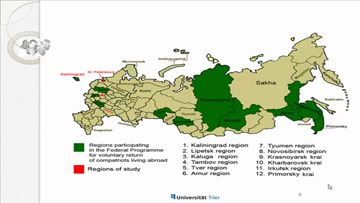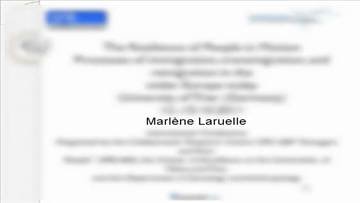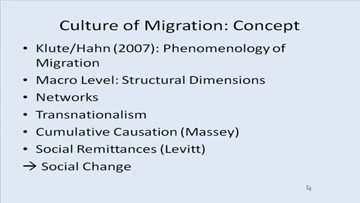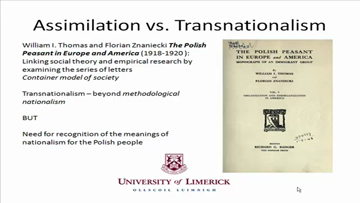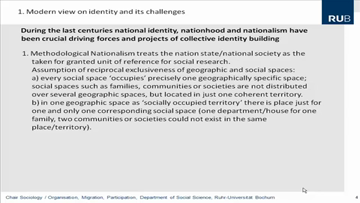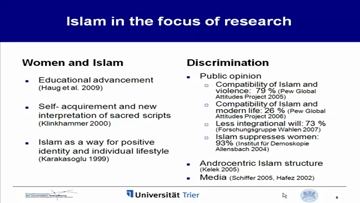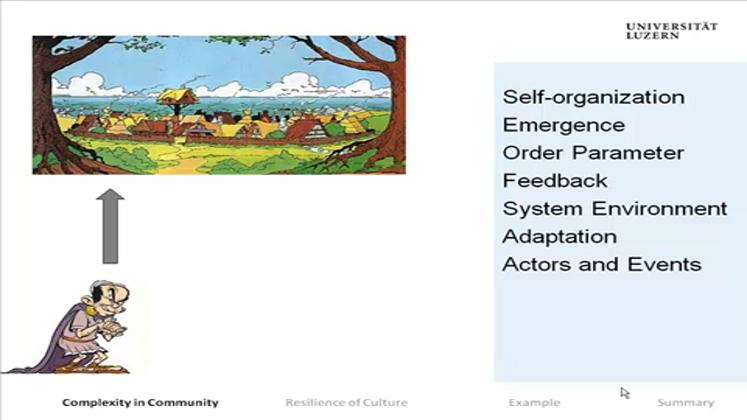The Resilience of Culture in Religious Minorities
A Complex Systems Approach
Lange's research aims at constructing a model that displays the social dynamics involved in the process of integration of a migrant religious minority. Major aspects are the transformation of the group itself, their religious identities and the factors that lead to staying in or leaving the host society. The overall aim is a model that not only makes visible the complex interactions of the many factors involved, but also helps estimate future tendencies of development.
In order to take into account as many relevant factors as possible he works with the theory of complex adaptive systems. This theory was developed in the natural sciences and is today mostly found in the research on ecological systems (Mainzer 2008). In the social sciences it has already been applied to quantitative research (Byrne 1998) and found its use in archaeology (Beekman/Baden 2005). Stripped of its mathematical content and applied to findings of qualitative research and historiography this theory provides an understanding of how to approach an issue that complex, everchanging and historically individual.
Bernhard Lange is a PhD student in the Department for the Study of Religions at the University of Lucerne, Switzerland. In his PhD thesis he aims to model the dynamics between a migrant religious minority and the receiving society by comparing the Jewish communities of Zurich and Manchester.
Panel IV: The Religious Factor in Migration - October 14th, 2011
The Resilience of People in Motion
-
54498 Hits
-
|
-
2 Votes
-
|
-
16 Beiträge
Processes of immigration, transmigration, and remigration in the wider Europe today
Europe is a continent shaped by migration. Every year millions of people are migrating into the European Union. Others are emigrating from EU member countries. Many are leaving their homes and are trying to integrate into the host country, while others circulate between their home country and their “new home”, leave the country of entry, returning back to their “country of origin”, or they even migrate on to third countries.
Migration is a complex process with constraints and opportunities. Its flows have created different patterns, regimes and even cultures of migration. It involves voluntary and involuntary aspects, economic and non-economic issues, constructions and reconstructions between physical and symbolic spaces. This stipulates also new ways of theorizing and researching in the field.
Strategies of Survival, Strategies of Resistence
Migrants and migratory groups adopt as well as resist to challenges and expectations by the mobility itself or the receiving society. They perform resilient and innovative strategies of survival.
They are resilient by maintaining their culture(s), system(s) of belief, traditions, way of life etc. Yet, they are innovative being open for change, being transformers, innovators, entrepreneurs themselves. Therefore, adoption, change and/or innovation vs. resistance, continuity and/or resilience have to be seen as part of the migratory agency. The migrants’ culture of resilience, meaning the maintenance of core elements of their livelihood, has to be conceptualized in an ever changing world challenging the integrity and cohesion of any, but especially migratory groups.
The Conference
The aim of the conference is to discuss new theoretical approaches, methodologies and empirical research results on immigration, transmigration and re-migration topics. It focusses on changing European migration regimes and discourses since the fall of the iron curtain until today.
Contact
Prof. Michael Schönhuth
University of Trier
Universitätsring 15
D-54286 Trier
+49-(0)6 51-201-27 10 (Office)
http://transmigration.eu/
Zu
The Resilience of People in Motion
